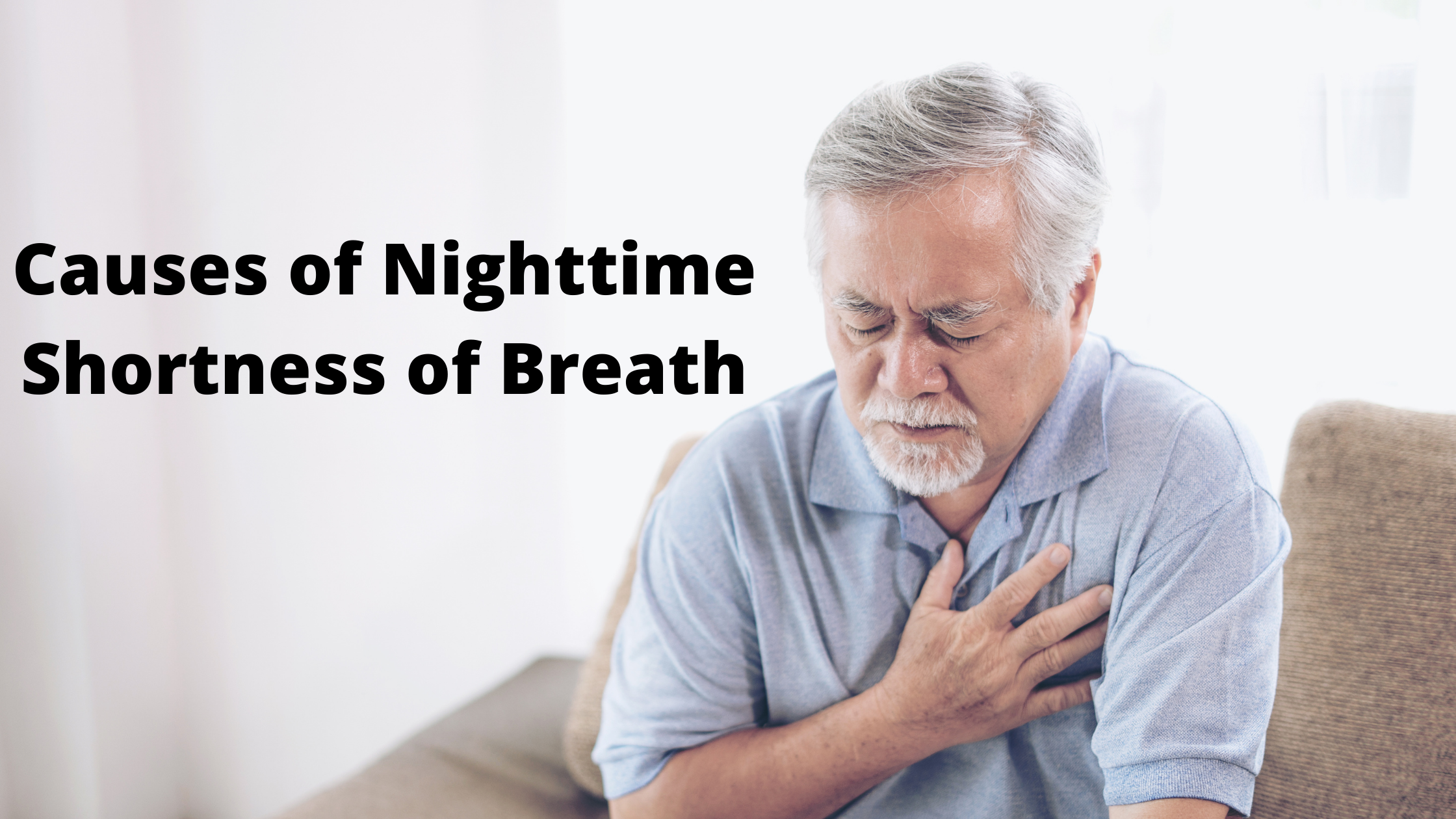Experiencing shortness of breath, also known as dyspnea, is a cause for concern on its own. However, when it occurs at night, it may indicate a more serious underlying issue. Typically, during sleep, you shouldn't feel out of breath because your body is at rest. Therefore, if you find yourself breathless during the night, it could be a sign that something is amiss. Keep reading to discover the potential causes of nighttime shortness of breath.
Emergency Signs and Symptoms
When you are short of breath, you are experiencing a symptom called dyspnea. When you experience it immediately upon laying down, that is called orthopnea. If you often wake up in the middle of the night feeling like you can't breathe, that is called paroxysmal nocturnal dyspnea, or PND.
These symptoms may be benign, or they may be serious. You should seek immediate medical care if you experience the following symptoms:
- Can't catch your breath when lying flat
- Experience worsening or prolonged shortness of breath that doesn't go away or gets worse
- Blue lips or fingers
- Swelling near your feet
- Flu-like symptoms
- Wheezing
There can be many sources of your shortness of breath. Below are some organs that may be causing the symptoms.
Lungs
Various lung conditions can cause shortness of breath and get worse at night.
Asthma
Asthma is inflammation of the lungs. This leads to difficulty breathing and you may experience nighttime shortness of breath because your sleeping position puts pressure on your diaphragm, mucus builds up in your throat causing you to cough and struggle for air, your hormones change at night, and your sleeping environment triggers your asthma. Asthma can also be triggered by another issue called gastroesophageal reflux disease.
Pulmonary embolism
A pulmonary embolism forms if there is a blood clot in your lungs. In addition to shortness of breath, you may also experience chest pain, coughing, or swelling. You may develop a pulmonary embolism if you have been confined to a bed for a lung time (like post-surgery) which can restrict your blood flow in your lower extremities. When your blood slows, it clots, and a piece of this clot can break off and settle in your lungs, forming a pulmonary embolism. This is a medical emergency, so if you think this is what you have, then it's important to seek care immediately.
Chronic Obstructive Pulmonary Disease (COPD)
COPD causes blocked or narrowed airways that makes breathing more difficult. You may also experience symptoms like wheezing, coughing, mucus production, tightness in the chest. Smoking or exposure to harmful chemicals can cause COPD.
Pneumonia
This illness can be caused due to a virus, bacteria, or fungi and cause inflammation and edema (fluid swelling) in your lungs. You may also experience flu-like symptoms, coughing, chest pain, and tiredness. If you have a high fever, you should seek medical treatment as fluid build up can make it very difficult to breathe.
Heart
Heart conditions can also cause shortness of breath as any issues moving fluid through the heart can cause a back up in the lungs. The back up in the lungs can push fluid into the lung tissue, which is normally filled with air, causing difficulty breathing. Here are a few heart conditions that can cause this fluid backup.
Heart Failure
If your heart starts to fail, then it cannot pump blood like it's supposed to. You can develop this conditions for many reasons including high blood pressure, diabetes, smoking, obesity and certain medications.
Another cause of shortness of breath is a heart attack. Coronary artery disease is a disease where your coronary arteries (which supply blood to make the heart work) become clogged. This can lead to a heart attack which can be fatal if not addressed immediately. If you experience shortness of breath and pain shooting down your left arm, then seek medical care immediately.
High blood pressure is also associated with heart failure and heart attacks, as well as irregular heart rates, trauma and inflammation. If you think your heart may be experiencing a problem, then it's extremely important to talk to a professional about it right away. Unresolved heart issues can be fatal.
Allergies
Allergies can worsen at night and lead to shortness of breath. If your sleeping environment is full of allergens like dust, mold and pet dander, then that can trigger allergy symptoms. Open windows can also allow for allergens like pollen to enter your room as well.
Sleep Apnea
Sleep apnea is a condition that occurs during sleep and cause narrowing of the airways due to the muscles in the back of the throat collapsing. You may wake up throughout the night to take deeper breaths to make up for the lack sufficient breathing previously.
It's very difficult to know if you have sleep apnea unless you sleep with a partner who can tell you that you occasionally stop breathing throughout the night. The only symptoms you may be aware of is a headache in the morning and excessive daytime sleepiness. However, it is very helpful to have someone else who can inform you of your sleeping patterns so you can go find a sleep professional to do a sleeping test.
Anxiety
Your mental well-being can correlate with nighttime shortness of breath. If you are feeling anxious during the night, this can trigger your sympathetic nervous system to activate which causes you to breathe faster. This can lead to a panic attack which may make it harder to take deep breaths and get adequate oxygen. If you experience these often, then it may be best to talk to a mental health professional to get adequate help and medication.
Shortness of breath throughout the night is not normal and can be attributed to a wide variety of health issues. If you experience orthopnea or dyspnea during the night, it's important to talk with a healthcare professional as soon as possible. Please click the orange button below to take a free online sleep test.
https://www.healthline.com/health/sleep/shortness-of-breath-at-night#anxiety


